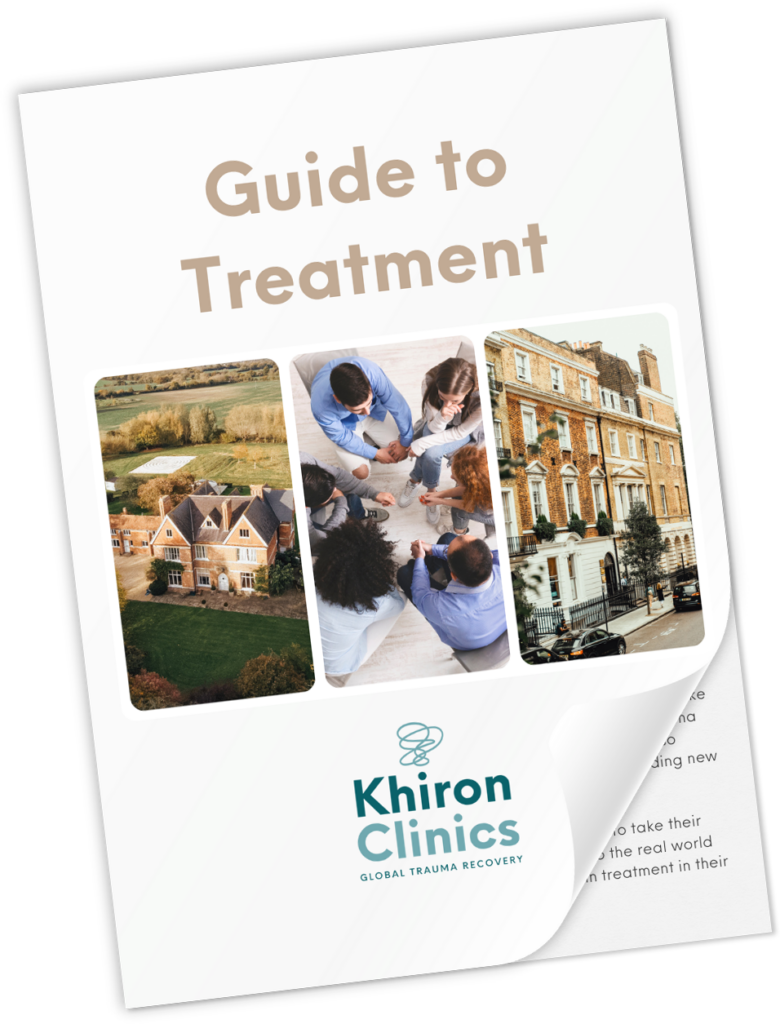New Year’s Eve is often portrayed as a time to pop open the champagne and toast the year ahead. However, this may not be the best way to celebrate those recovering from substance or alcohol misuse. Many people struggling with trauma can have an unhealthy relationship with alcohol, so it may not be wise to break out the bubbly when seeing in the New Year.
Although it may initially seem boring, there are many sober ways to enjoy New Year’s Eve, whether you’re going out with friends or staying at home.
Trauma and Substance Abuse
There is a strong link between trauma and substance abuse. Many people struggling with unresolved trauma may turn to drugs or alcohol in an attempt to self-medicate and manage their symptoms alone. However, this can have many negative consequences on both physical and mental health, and can lead to addiction.
There are many studies that focus on the link between trauma and substance abuse. Research has found that those with childhood trauma are more likely to develop a dependence on alcohol, and that those who have experienced emotional abuse may be at an increased risk for alcoholism.[1]
One of the main studies on the link between trauma and substance abuse is the Kaiser Permanente’s Adverse Childhood Experiences (ACE) study from 1998. Adverse childhood experiences include abuse, domestic violence, divorce, neglect, and having a parent or caregiver with a substance use disorder. Those who experience four or more ACEs are more likely to:
- Go to prison
- Develop heart disease
- Have a substance use disorder
The evidence also showed that those who experienced five or more ACEs are ten times more likely to experience addiction than those who did not experience trauma.[2]
Therefore, it may be wise for those receiving treatment for trauma and mental health conditions to avoid alcohol completely to preserve their mental health. Additionally, many people may also be in recovery and need to avoid drugs and alcohol in the case of a relapse.
Staying Home
There is no shame in having a quiet night in for New Year’s Eve. For many people, Covid-19 has prompted them to stay at home this year for their New Year’s celebrations. Staying in can help you avoid triggers, reduce social anxiety, and give you more control over how the evening goes. You could:
- Host a small gathering – If you want to avoid big parties, consider hosting a small get-together of your own! You can set the rules around limiting alcohol or removing it completely and find some fun activities that don’t encourage drinking. Why not invest in a board game or download some fun multiplayer games on your gaming console or phone!
- Treat yourself – Even if you’re not drinking, you can still use New Year’s Eve as an excuse to treat yourself and let go a little. Splurge on the pre-New Year sales, order a decadent takeaway, or spend the night luxuriating in a long bath – drinking isn’t required for you to feel good as you see in the New Year.
- Ring in the New Year in a different way – You don’t have to start 2022 with a drink in hand. Toast to the New Year with a mocktail and party popper, or break out the leftover Christmas crackers. Alternatively, start watching a film at a specific time on New Year’s Eve and watch as 2022 begins with an epic moment such as Spiderman saving the day!
Going Out
For those trying to stay sober, going out to party on New Year’s Eve can feel incredibly overwhelming. In fact, it may not be advisable to attend parties if you’re newly sober and you know many people will be drinking or using substances. However, if you feel confident going out and socialising, these tips can help you to stay on the sober path:
- Take a sober friend – Attending a party with a sober buddy can be much easier than going alone. If you are tempted to drink, your friend can gently steer you outside for a break or give you a nudge to remind you why you aren’t drinking. If all of your friends are drinking, have someone on hand to call if you feel overwhelmed.
- Have an exit strategy ready – It can be challenging to avoid the temptation of drinking or using substances at a party, so have an escape plan in case you need to leave quickly. If you don’t feel comfortable sharing why you’re leaving, have a few excuses ready, such as working the next day or having a family event to go on to.
- Attend a sober party – Find a local event that doesn’t serve alcohol. This removes the temptation, and even if you do feel the urge to drink, you won’t be able to buy any.
Staying sober when surrounded by people drinking or using substances can be a monumental challenge for some people. Remember that it’s okay to leave at any point – your mental and physical health is your priority. If you find yourself in a situation where your risk of relapse is high, stay calm and extract yourself as quickly as possible. Call a taxi or an Uber and speak with a trusted friend or family member until it arrives. They can help ground and distract you until you’re in a safe place.
Relapse
Many people relapse during recovery. Although it may feel like a significant setback, it isn’t the end of your journey, and you haven’t undone all your hard work during treatment. People can relapse for several reasons, many of which are present on New Year’s Eve, including:
- Triggers – Social and environmental triggers such as the people you associate with or places you hang out can prompt you to slip back into negative habits.
- Pressure – Friends and even family may pressure you to drink, especially on New Year’s Eve. This pressure can lead you to crack and drink again, especially if you are new to recovery.
- Stress – New Year’s Eve can be stressful for many people in recovery, and you may worry about the year ahead or reminisce about the past, which can be challenging if you haven’t developed healthy coping mechanisms.
If you do relapse, it is vital that you reach out for help. Slip-ups can happen, and although this is not necessarily a crisis, it may spiral into a bigger problem if left untreated and unacknowledged. Reach out for help and treatment if necessary.
Conclusion
Staying sober for New Year’s Eve can be challenging, especially for people avoiding drugs and alcohol. Those struggling with trauma have much higher chances of struggling with alcohol and drug abuse, with high rates of people with post-traumatic stress disorder (PTSD) also struggling with alcohol use disorders.[3] However, there are plenty of sober ways to still have fun and ring in 2022. What will you be doing to celebrate the New Year?
If you have a client or know of someone struggling to heal from trauma and substance abuse, reach out to us at Khiron Clinics. We believe that we can improve therapeutic outcomes and avoid misdiagnosis by providing an effective residential program and outpatient therapies addressing underlying psychological trauma. Allow us to help you find the path to realistic, long-lasting recovery. For more information, call us today. UK: 020 3811 2575 (24 hours). USA: (866) 801 6184 (24 hours).
Sources:
[1] Schwandt, Melanie L et al. “Childhood trauma exposure and alcohol dependence severity in adulthood: mediation by emotional abuse severity and neuroticism.” Alcoholism, clinical and experimental research vol. 37,6 (2013): 984-92. doi:10.1111/acer.12053
[2] Douglas, Kara R et al. “Adverse childhood events as risk factors for substance dependence: partial mediation by mood and anxiety disorders.” Addictive behaviors vol. 35,1 (2010): 7-13. doi:10.1016/j.addbeh.2009.07.004
[3] Carter, Ashlee C et al. “Co-occurring Posttraumatic Stress Disorder and Alcohol Use Disorders in Veteran Populations.” Journal of dual diagnosis vol. 7,4 (2011): 285-299. doi:10.1080/15504263.2011.620453



